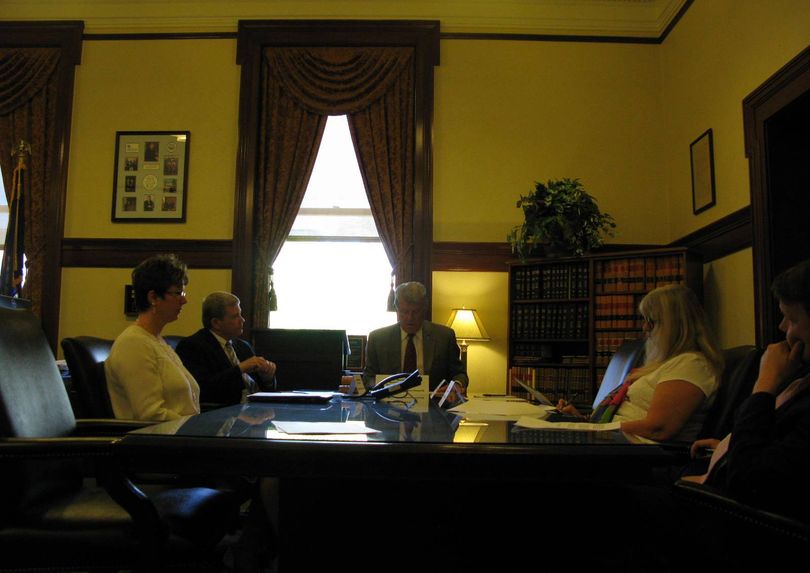Idaho pays up after failed defense of anti-union law

Here’s my full story at spokesman.com on the 4-0 Constitutional Defense Council vote today to pay $280,000 in attorney fees to a group of unions who successfully challenged an anti-union bill that Idaho lawmakers passed in 2011, despite warnings from the Idaho Attorney General’s office that the law likely wouldn’t survive a legal challenge.
James Piotrowski, attorney for the unions – now a Democratic candidate for Congress, seeking to challenge 1st District GOP Rep. Raul Labrador – said, “I personally told the Legislature back in 2011 that we would challenge this and I thought we would be successful, and that it would end up costing the state a bunch of money. That’s exactly what happened.” He said, “This is just a really bad use of taxpayers’ money to advance a political agenda in the worst possible way.”
Idaho pays up after failed defense of anti-union law
By BETSY Z. RUSSELL
BOISE – Idaho’s top state elected officials agreed Wednesday to pay $280,000 in attorney fees and costs to a group of unions who successfully challenged an anti-union bill passed by the Idaho Legislature in 2011.
The law, which was immediately enjoined and never took effect, banned “job targeting” or “market recovery” programs, in which unions use funds they collect from workers to subsidize bids by union contractors on jobs.
When lawmakers were considering the measure in 2011, the Idaho Attorney General’s office warned that it likely would be overturned in court, as it conflicted with the federal National Labor Relations Act. But the bill passed anyway; it included criminal penalties and hefty fines for violations.
A group of labor unions immediately sued in federal court and won. The state unsuccessfully appealed to the 9th Circuit, which ruled in 2015 that “it is well settled” that the NLRA protects such activities by unions.
On Wednesday, Idaho’s Constitutional Defense Council, which consists of the governor, the Attorney General, the House speaker and the Senate president pro-tem, voted 4-0 to approve the payment, dipping into the state’s Constitutional Defense Fund, which they oversee.
After the brief council meeting, which House Speaker Scott Bedke and Senate President Pro-Tem Brent Hill attended by phone, Otter said, “We lost.”
Asked about the Legislature ignoring the Attorney General’s advice and passing the bill in the first place, he said, “I think the Attorney General has one role to play, and that role is in his analysis and his point of view to advise the Legislature … if something is subject to constitutional question.” He added, “I would tell you, that was one of the reasons we set up the Constitutional Defense Fund in 1995.”
This year, lawmakers deposited another $2 million in state general tax funds into the defense fund, at Otter’s request, on top of the $2.5 million already deposited since the fund’s creation, anticipating legal bills including this one.
The fund was set up in 1995 to defend state sovereignty and constitutional issues, and at first was used to cover costs for litigation regarding the Idaho National Laboratory; since then, it’s been used largely to pay the attorney fees and costs of the winning side when the state has lost lawsuits over unconstitutional legislation.
“The Legislature has got to be guided by their public consciousness in how they’re representing the people,” Otter said. “They can accept advice or reject advice.”
Idaho Attorney General Lawrence Wasden said, “Our obligation is to defend state policy choices made by the Legislature in the form of statutes, and so we do our job, as we did in this case.”
The 2011 law was dubbed the “Fairness in Contracting Act.” Sponsored by then-Sen. John Goedde, R-Coeur d’Alene, the bill passed the Idaho Senate 25-8 and the House 55-15, and Otter signed it into law on March 3, 2011.
Deputy Attorney General Brian Kane said the unions sought more than $374,840 in costs and attorney fees; the state negotiated that down to $280,000.
